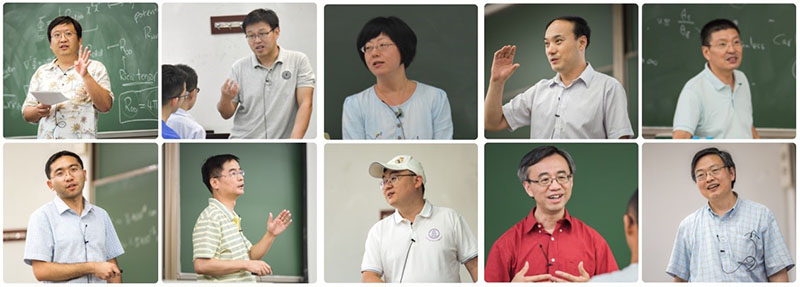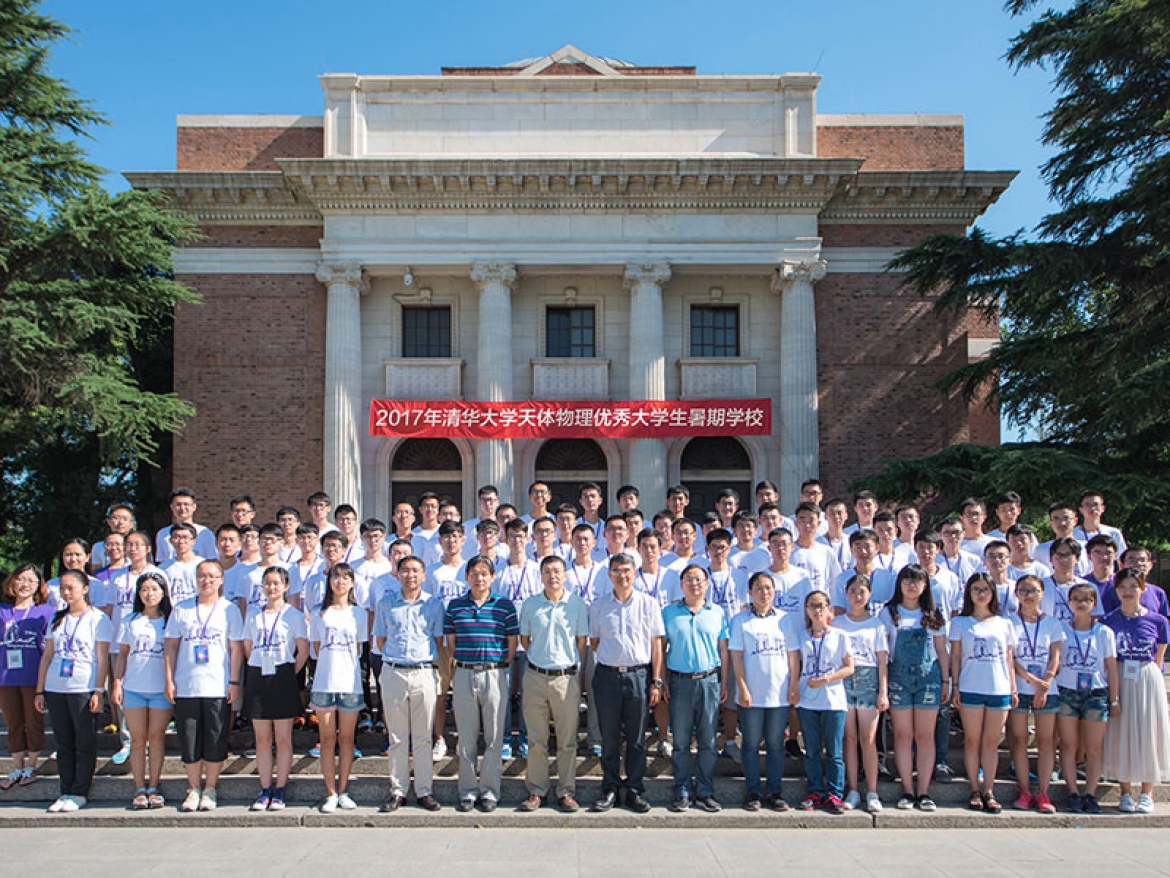2017 Summer School for Astrophysics at Tsinghua
On July 10-14, 2017, the summer school for excellent college students of astrophysics at Tsinghua University was held in the west lecture classroom of Tsinghua University. It was participated by more than 70 students from seventeen schools such as Tsinghua University, Peking University, University of Science & Technology of China, Zhejiang University and Sichuan University, etc.
On the morning of July 10th, Prof. Dong Ruan, the deputy chair in the Department of Physics, presided the opening ceremony and introduced the background of the summer school. He encouraged the students to be self-confident, take initiative and be communicative. Deputy director Prof. Guilu Long welcomed the students. He talked about his interest in astronomy with the students, and wished them a rewarding experience here. Prof. Shude Mao, the Director of Tsinghua Center for Astrophysics (THCA) as well as the president of the summer school, introduced the basic information of THCA, and put forward a "211 Plan" to the students, i.e., the plan to ask two questions, identify one research interest, and make one new friend during the summer school.

The summer school aims to "introduce the frontier knowledge and cultivate students' learning and exploration interest". Experts teaching in the five days of summer-school activities include: Prof. Yanbei Chen from California Institute of Technology, Prof. Xuening Bai from Harvard University, Prof. Yifu Cai from the University of Science and Technology of China, Prof. Jun Zhang from Shanghai Jiao Tong University, Prof. Liping Fu from Shanghai Normal University, Prof. Jian Wu from Purple Mountain Observatory, CAS, as well as Profs. Qian Yue, Shude Mao, Houjun Mo and Wei Cui from Tsinghua University. They touched upon nine major astronomical topics, i.e., the research of gravitational waves, protoplanetary disks and planetary formation, theory of early universe and perturbation, weak gravitational lensing, direct and indirect detection of dark matters in the space, search for extrasolar planets and extraterrestrial life, formation and evolution of galaxies and large-scale structures, and high-energy astrophysics. There are lively exchanges and discussions between teachers and students during and after classes. In addition, the students visited Tsinghua Center for Astrophysics and the Art Museum of Tsinghua University in their spare time. In the afternoon of July 14, the summer school for excellent college students of astrophysics at Tsinghua University successfully concluded in a happy atmosphere.
The summer school for excellent college students of astrophysics at Tsinghua University was jointly launched by Peking University, Fudan University, University of Science & Technology of China, Nanjing University and Tsinghua University, and each year the above five universities take turns to hold the summer school on one theme. The summer school broadens students' academic horizons, provides them with a platform for academic exchanges and knowledge acquirement, and gives these young people opportunities to meet and communicate with each other.



